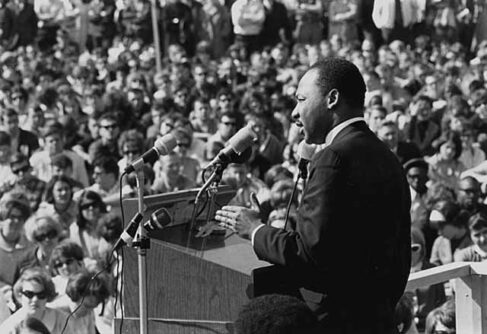On Wednesday, author and entrepreneur Andy Kessler published a provocative op-ed in the Wall Street Journal [subscription only] encouraging philanthropists to offer big-dollar -- even billion-dollar! -- prizes for solutions to big problems.
As Kessler points out, there’s a long history of prizes for solutions to critical problems, such as the Longitude Prize offered in the early eighteenth century by the British government for a solution to the problem of reckoning longitude while at sea. Dava Sobel’s 1996 best-selling Longitude recounts how John Harrison, a self-educated clockmaker, collected on this prize with inventions that revolutionized navigation.
Kessler’s recommendation of big prizes is urging the furtherance of a trend that is already underway: philanthropists are already increasingly offering prizes as a way to spur solutions to big problems. A 2009 McKinsey study found that the aggregate value of prizes valued at more than $100,000 had tripled in the previous decade to $375,000,000.
Many of today’s philanthropists became wealthy through entrepreneurship -- staking their own resources to invent or market a new product. Prizes, which likewise encourage scientists and inventors to stake their own time and resources in a quest for discovery and financial reward, would seem to appeal to many of today’s entrepreneur-philanthropists as setting up circumstances parallel to the ones that allowed for their successes.
What makes prizes so attractive? At least four reasons, two of which are highlighted by Kessler.
(1) First, as Kessler stresses, you get more than what you pay for -- and who doesn’t like that? Kessler writes:
The X-Prize Foundation runs a series of contests, the most famous being the $10 million Ansari X-Prize, which saw 26 teams spend a total of more than $100 million attempting to fly three people 100 kilometers (62 miles) into space twice within two weeks.
Prizes stimulate lots of activity -- but only the winner gets paid directly. So prizes are very efficient ways of spurring investment in research and discovery.
(2) Relatedly, you don’t pay for failure. Many have argued that philanthropists spend great sums to little effect -- the most recent in this vein being former NPR CEO Ken Stern’s, who has just published With Charity for All: Why Charities Are Failing and a Better Way to Give. Philanthropists who offer prizes for well-defined goals don’t risk spending anything on failure.
(3) Prizes focus attention on what Kessler calls “BHA -- Big, Hairy, Audacious goals.” Figuring out how to reckon longitude was BHA. Kessler mentions other examples of BHA goals achieved after a prize was offered, such the first nonstop New York-to-Paris flight. Charles Lindbergh piloted the plane that won the $25,000 prize for this feat in 1919. Kessler envisions other BHA goals being achieved today through the incentive of a really big prize, such as a prize for discoveries
to prevent or stop Alzheimer’s, or to regenerate spinal cords and organs, or to cure obesity. Instead of small-ball academic researchers vying for grants from the National Institutes of Health, you’d get entrepreneurs coming out of the woodwork trying innovative approaches to win a $1 billion jackpot. Or maybe the challenge could be to create personal jet packs. Or neuron downloads. Whatever -- but something BHA.
A prize for a personal jet pack -- eliminating the need for walking! -- might counteract the effects of a prize to cure obesity. And, one might wonder if a billion dollars is too much: the $25,000 won in 1919 for the first nonstop New York-to-Paris flight is worth only $333,000 today. Still, it is certainly true that a well-defined prize for an important problem attracts attention.
(4) And, prizes can work in instances of apparent “market failure” -- when the market isn’t providing the right incentives to entrepreneurs and inventors. BHA goals are risky to achieve and don’t always have an immediate economic payoff for the person who can achieve them. Prizes provide a financial incentive for the innovator, and they help connect him to those who are able to apply his discovery. John Harrison wasn’t going to navigate at sea himself, but the British government’s prize offered him not only an economic incentive but a mechanism for communicating his discoveries to those in the British navy who were ready to apply them.
Prizes, of course, are no guarantee of success -- and there are many goals that can’t be achieved by offering prizes. Nevertheless, it’s clear that more and more philanthropists are attracted to offering prizes in their efforts to change the world.






